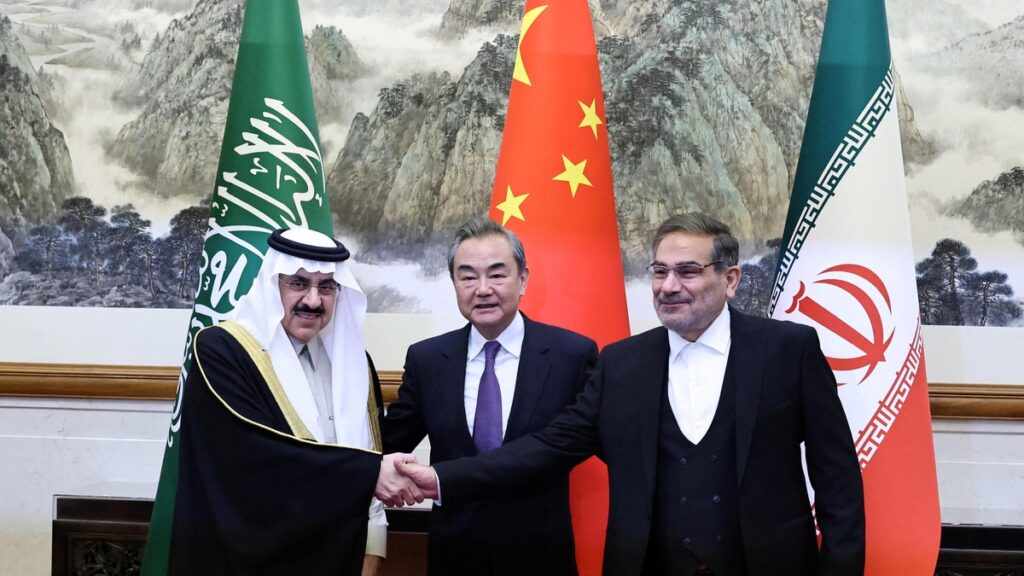News Desk, Kolkata : In a week rife with global turbulence, geopolitical chess pieces moved across the board, marking a series of impactful events that held the world’s attention. Iran, facing escalating tensions, launched counterstrikes in multiple regions, sparking fears of a broader conflict in the already volatile Middle East.
Iran’s Roar and Israel’s Response
Tensions reached a boiling point when Iran, in a bold move, unleashed counterstrikes in Iraqi Kurdistan, Syria, and Balochistan, Pakistan. The military action was a direct response to recent assaults on Iranian law enforcement in its Sistan-Balochistan province. The strikes coincided with joint naval drills between Iran and Pakistan, showcasing a strategic alliance that added a layer of complexity to the already intricate geopolitical landscape.
The catalyst for Iran’s retaliation was a missile strike in Damascus that claimed the lives of five members of Iran’s elite Revolutionary Guards. In the aftermath, Tehran vowed revenge against Israel, further escalating the long-standing tension between the two nations. Iranian President Ebrahim Raisi condemned the “cowardly attack” and assured that Iran’s response would be swift and resolute.
The strike in Damascus not only claimed lives but also sent a powerful visual message, with a large plume of smoke rising skywards. The incident heightened fears of a broader conflict in the Middle East, as Israel’s persistent bombing campaign against Iran’s military and security presence in Syria fueled the flames of animosity.
Middle Eastern Chessboard and Global Concerns
As the Middle East found itself at the epicenter of escalating conflict, Israeli Prime Minister Netanyahu rejected a US-supported Saudi peace proposal. The proposal, calling for reconstruction in Gaza and Israel’s commitment to a lasting peace framework with the Palestinians, faced resistance. The rejection underscored the complexity of regional dynamics and the intricate web of alliances and rivalries.
Amidst this geopolitical theater, global concerns were not limited to the Middle East. In China, demographic challenges emerged as the country faced its second consecutive year of population decline. The shrinking population raised apprehensions about China’s future economic growth against the backdrop of an aging demographic.
France’s Controversial Shift in Education Leadership
Away from the geopolitical hotspots, France grappled with its own set of controversies. Newly appointed Education Minister Amelie Oudea-Castera faced backlash for a seemingly personal decision that had public implications. Her choice to move her child from a public to a private school sparked questions about her commitment to public education, especially in the midst of an Olympic year.
The controversy added a domestic dimension to the global narrative, highlighting the challenges leaders face in balancing personal choices with public expectations. As France prepared for the Olympics, the Education Minister found herself in the spotlight, navigating the delicate balance between personal life and public service.
Reflections on Demography and Diplomacy
The contrasting stories of China’s demographic decline and France’s domestic controversy underscored the multifaceted challenges shaping the world. China grappled with demographic hurdles, raising questions about the sustainability of its economic growth model. France, on the other hand, navigated a political storm fueled by a minister’s personal choice, reflecting the interconnectedness of personal decisions and public perceptions.
As the global community grappled with these developments, the week served as a stark reminder of the delicate balance between geopolitics, demographic shifts, and domestic controversies. The world watched as Iran and Israel danced on the edge of conflict, as China faced demographic realities, and as a French minister found herself under scrutiny. In this intricate tapestry of events, the threads of diplomacy, demographics, and domestic choices wove together a narrative that captured the complexities of our interconnected world.
DISCLAIMER
Our news media denounces any form of bias and disapproves of sensationalism. The disseminated news is entirely educational and aimed at social awareness. Our media maintains absolute impartiality, adhering solely to the purpose of education and social consciousness.


